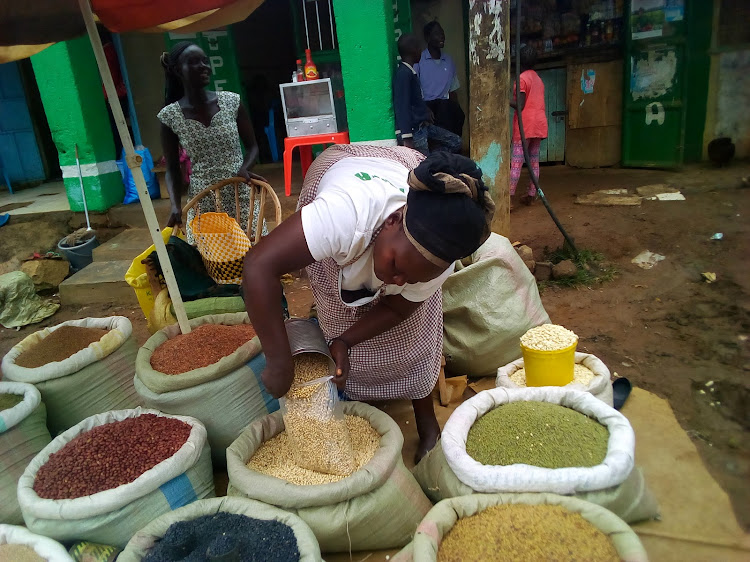
Our Projects are
Transforming African Trade
Quick Contacts
2nd Floor, Fidelity Insurance Centre Waiyaki Way, Westlands

Small-scale grocery and fruit traders from Kenya and Uganda have returned to business in Malaba despite a ban on cross-border movement.
Traders from both sides of the border cross over to buy and sell grains and fruits, defying Covid-19 restrictions to make ends meet.
Many Ugandans trading in Malaba said Kenya is their primary market and they have no option but make the short trip across.
Richard Maasai, a Ugandan a wholesaler of ripe bananas in Malaba, Kenya said business has been badly hit by the border closure.
“Since the border was shut, we have not been selling our stock. We have been forced to cross the border because we need money. Taking care of our families has been difficult.”
Maasai said local prices for the fruit have skyrocketed due to restrictions on the Ugandan side of the border.
He buys the bananas from Mbale in eastern Uganda and ferries them using friendly cargo truck drivers. Maasai sends the money to drivers to bring the goods.
Once delivered, he crosses the border into Kenya where he sells during the day and returns home to Uganda in the evening.
“We are appealing to the Kenyan and Ugandan governments to reopen the border. Our businesses are dying. We will follow all Covid-19 guidelines,” Maasai said.
He said the county government of Busia has been friendly to Ugandan traders and local revenue authorities allow them to sell the goods to earn a living.
President Yoweri Museveni closed Uganda’s international borders on March 22 and Kenya’s Uhuru Kenyatta did the same the following day to contain the spread of coronavirus. Cargo trucks were exempted from the travel bans. The closures locked informal cross-border businesses in Busia and Malaba.
Kenya reopened borders for international travellers from select nations on August 1 but Uganda is yet to do so.
Agnes Ikarede who sells oranges, watermelons, pineapples among other fruits said the travel restriction has reduced the interdependence of businesses at the border.
“Our businesses have been battered. Crossing into Uganda to buy products has been difficult. Sometimes Ugandan police officers take away what we have ordered from truck drivers. But we have to struggle to make ends meet,” she said.
Ikarede, another Ugandan, said her main customers are from the Kenyan side of the border.
Her customers, she said, call her requesting for fruit deliveries every day.
She has to risk crossing the border to meet the demands of her clients.
“We appeal to the Kenyan and Ugandan governments to allow us to operate across the border. There is no money,” she said.
Other Uganda traders hawk cosmetics and second-hand clothes in Malaba.
A Kenyan cereals trader at Malaba’s main market said Covid-19 had caused a steep decline in cross-border trade.
“From the time coronavirus was reported, we have lost business. We are suffering. Some of our products come from Uganda. Sometimes the trucks we send to bring us cereals get arrested and the goods are taken away by Ugandan authorities,” she said.
She said she used to sell tomatoes sourced from Uganda but they would rot before reaching due to the long time taken to get to Kenya. She abandoned that business.
“These two countries should agree on reopening the border so that we continue doing business together and continue uniting our people and live together.”
Malaba port health officials told the Star that Health ministry protocols are strictly followed, especially on cross-border movement.
For one to be allowed to cross the border, he or she must be cleared by the Health ministry and provide a negative Covid-19 test certificate.
The traveller must also have valid travel documents to be verified by immigration officials.
Read original article
Disclaimer: The views and opinions expressed in this article are those of the authors and do not necessarily reflect the official policy or position of TradeMark Africa.